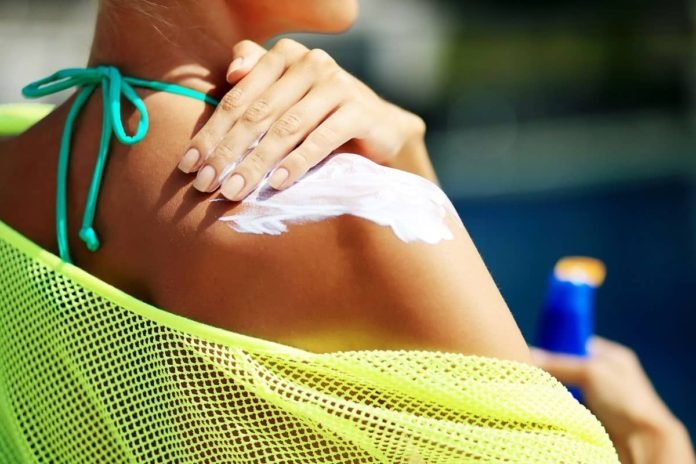Many people remember times during childhood when they either did not wear any sunscreen at all or covered themselves with a mere SPF 30. Perhaps they even slathered on baby oil while lounging poolside. If you were such a person, you’re likely looking back on time spent outdoors sans sunscreen and asking “What was I thinking?”
However, there are also those who feel wearing sunscreen doesn’t deserve nearly as much of the skin-protecting hype it’s getting. In fact, this latter group feels that sun-shielding body products do more harm than good.
So, what’s the deal? Does sunscreen help or hurt us?
The Case Against Sunscreen
Some feel that the chemicals in sunscreen pose a threat to the human body, as they’re absorbed through the skin. So, in an effort to avoid skin cancer, sunscreen users are applying something that may well itself be cancer-causing. In fact, studies have shown that 77% of cancers are actually prevented because of obtaining (not avoiding) the sun’s vitamin D. Therefore, the argument is that intentionally blocking this benefit can end up wreaking havoc on your body.
One particular chemical commonly found in sunscreen—oxybenzone—has been found to disrupt hormones. It might also play a role in endometriosis (i.e. abnormal tissue growth in the uterus) in females, and a low sperm count among males.
When the Environmental Working Group looked into this chemical, they discovered that approximately half of commercial sunscreens contain oxybenzone as an active ingredient. That’s a lot of health-jeopardizing activity taking place at the beach, local swim club, and even while simply out gardening.
Reasons to Use Sunscreen

Sunscreen advocates, however, are adamant that sunscreen is an essential skin-saver, often wearing it themselves and suggesting that others follow suit. They maintain that their reasons are valid; indeed, they’re even backed by the Mayo Clinic, which notes that there is not yet a proven, direct correlation between sunscreen application and skin cancers. On the contrary, the Mayo Clinic explains on their web site that sunscreen can help lessen the risk of melanoma, which is the most serious kind of skin cancer.
Dr. Wendy Roberts, a board certified dermatopathologist, endorses a sunscreen regimen. Among her cites reasons for advocating sunscreen use include changes in the ozone layer (and an inability to protect the skin as effectively as it once did), increased skin cancer rates, and the fact that longer time in the sun does not automatically translate to vitamin D benefits. In addition to an increase in skin cancers, she explains that red and brown spots, overall blotchiness, wrinkles and prematurely aging skin can develop when foregoing such protection.
“You will regret not having worn sunscreen when you look at your skin compared to friends and family who have worn daily sunscreen 20 years from now,” Roberts says.
In addition to wearing—and being sure to re-apply—sunscreen, experts advise avoiding long time spent in the sun during its peak skin-damaging hours of 10am-2pm. This advice isn’t just relevant in hot summer months or when there isn’t a cloud in the sky; it should be worn in all seasons, and even during overcast days, as damaging ultraviolet (UV) rays are still capable of harming skin in these settings. Those who are on board with spending less time in the sun also suggest wearing ray-shielding clothing (many today have certain anti-UV technologies in them) such as wide-brimmed hats, loose long-sleeved tops and sunglasses. Walking or resting with an umbrella can also provide necessary shade.
A Personal Choice
It’s also important to note that every person is unique, so there are varied bodily reactions to sun exposure. When deciding whether to soak up rays or keep them at bay with sunscreen, it’s important to consider family history of cancer, overall sun exposure (though work and recreation), preexisting medical conditions, and skin and eye color (as, for example, having fair skin and green or blue eyes typically means you are more likely to be damaged by the sun).
As with many issues in life, there are two very different sets of opinions that stand on completely opposite sides of the health fence. Ultimately, the choice is yours. It’s best to stay informed about the pros and cons of the sun’s benefits as well as its harms, and to use sunscreen based on your personal thoughts and health background.








